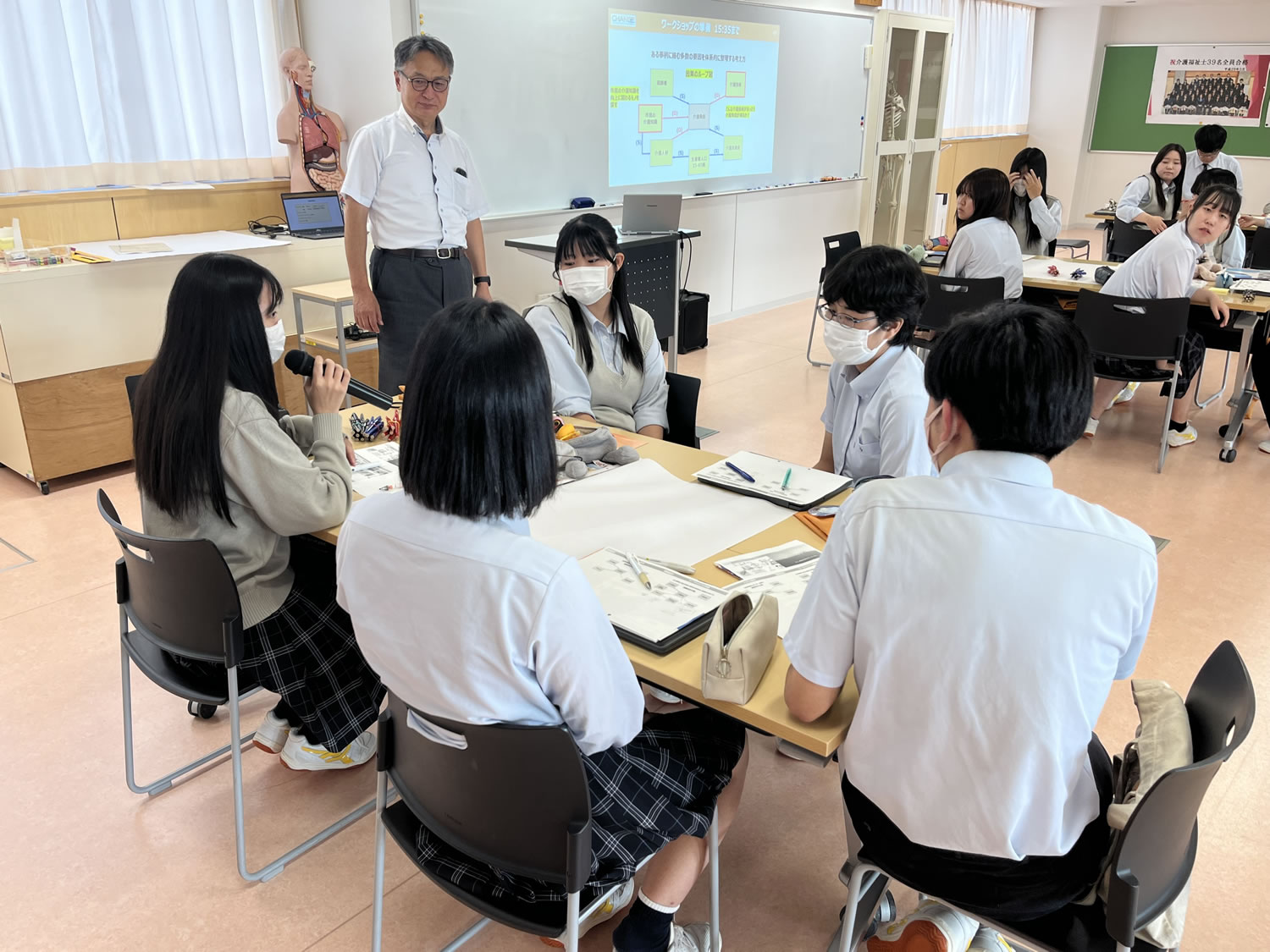News&Topics
Kanmin-Kogaku Column ㉒: The Need for Everyone to Learn About Nursing and Care to Protect Those Dear to Us ~ A Message from High School Students in the Welfare Department ~
The White Paper on Aging Society, published annually by the Cabinet Office. According to the 2025 edition, Japan's aging rate (the percentage of the total population aged 65 and over) was 29.3% as of October last year. This is one of the highest rates in the world. As the total population continues to decline while the elderly population increases, the aging rate is projected to reach 38.7% by 2070, with one in four people aged 75 or older. Furthermore, as the number of people with illnesses and those requiring nursing care increases in tandem, the demand for care workers is growing year by year. The Welfare Department at Kawasaki Municipal Kawasaki High School was established in 1997. It is the only municipal high school welfare department in Kanagawa Prefecture. Students gain nursing care training experience starting in their first year, and nearly all graduates obtain the Certified Care Worker qualification.
Project CHANGE conducts annual outreach classes on science related to reducing the burden of nursing and caregiving amid declining birthrates and aging populations at both this Welfare Department and the Science Department of Kawasaki Municipal Kawasaki Comprehensive Science High School. This year, as a first-time initiative, a joint workshop for both schools is planned. In preparation, a group work session was recently held at Kawasaki High School's Welfare Department to comprehensively systematize the factors related to “caregiving burden.” While various care products are being developed, many still place significant strain on the back. Additionally, care techniques requiring further technological development remain numerous, such as changing sheets while patients are lying down (where even a single wrinkle can cause pressure sores). Some expressed excitement about the upcoming discussions with students from Kawasaki City High School of Science and Technology. Furthermore, the conversation extended to the role of health education in schools, as it was noted that if everyone possessed more knowledge about caregiving and basic techniques, the quality of care would improve. In fact, at this school, students themselves conduct care classes for elementary school children during summer vacation, emphasizing the importance of fostering greater public interest in caregiving.
Kanagawa Prefectural Futamatagawa High School opened its Welfare Department in 2000 (then named Kanagawa Prefectural Health College Affiliated Futamatagawa High School). By 2020, the Welfare Department was also established at Yokosuka Minami High School, bringing the total number of high schools in the prefecture offering this program to four, including Tsukui High School. In Japan, where the pace of population aging and declining birth rates is accelerating, training care personnel is an urgent necessity. Furthermore, the need to advance collaboration with engineering fields was suggested.







